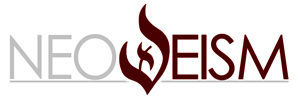In the vast tapestry of human thought, few threads are as intricately woven as those concerning free will, destiny, and divine intervention. These concepts have long been central to traditional theism, yet they present a trilemma that challenges the logical coherence of such beliefs. The Trinion Contradictions, as they are often called, posit that free will, destiny, and intervention cannot coexist without contradiction. This article explores these contradictions through the lens of Neo-Deism, seeking rational clarity in a universe governed by natural laws.
To understand the Trinion Contradictions, one must first appreciate the historical context of deist thought. During the Enlightenment, thinkers like Voltaire and Thomas Paine advocated for a belief in a Creator who set the universe in motion but refrained from intervening in its operations. This notion of God as the First Cause resonated with the scientific revolutions of the time, emphasizing reason and observation over revelation and dogma. Neo-Deism builds upon this foundation, rejecting the supernatural in favor of a rational spirituality harmonized with empirical science.
In traditional theism, the paradox arises when attempting to reconcile free will, destiny, and divine intervention. Free will suggests that human beings can make choices independent of divine influence. Destiny, however, implies a predetermined course of events, often orchestrated by a deity. Intervention denotes an active role of the divine in the universe, which can override human autonomy and alter destinies. How can humans possess free will if their lives are predestined or subject to divine whim?
This contradiction becomes particularly relevant in contemporary discussions about personal agency and moral responsibility. In a world where individuals are increasingly seeking autonomy over their lives, the concept of predetermined destiny appears antithetical to the values of personal freedom and accountability. Neo-Deism offers an alternative by emphasizing natural law as the framework within which human free will operates. By doing so, it resolves the contradiction by removing divine intervention from the equation, positing that while a Creator may have initiated the cosmos, it is up to humanity to navigate its course.
Philosophically, this perspective invites us to reconsider the nature of ethics and morality. Without divine intervention, moral systems are derived from reason and the observable consequences of actions within the natural world. This aligns with the Neo-Deist rejection of miracles and supernatural claims, favoring a moral order based on empirical evidence and rational deduction. In this way, ethics become a human responsibility, an endeavor to understand and harmonize with the universe’s inherent laws.
Practically, embracing the Neo-Deist approach can lead to a profound shift in how individuals live their lives. It encourages a mindset that values scientific understanding and personal growth over passive acceptance of fate. By acknowledging that destiny is not divinely dictated, individuals are empowered to shape their futures through informed decisions and ethical actions. This fosters a culture of responsibility, one where reverence for creation is expressed through sustainable living and a commitment to advancing human knowledge.
In conclusion, the Trinion Contradictions challenge the logical underpinnings of traditional theism by highlighting the irreconcilability of free will, destiny, and intervention. Neo-Deism provides a rational resolution by advocating for a universe where natural laws reign supreme, and human beings are free to chart their destinies within this framework. By embracing reason as the primary means of understanding, Neo-Deism offers a path for those seeking a spirituality rooted in logic and empirical inquiry. This perspective not only resolves age-old contradictions but also aligns with contemporary values of autonomy and responsibility, providing a meaningful framework for navigating the complexities of modern existence.
